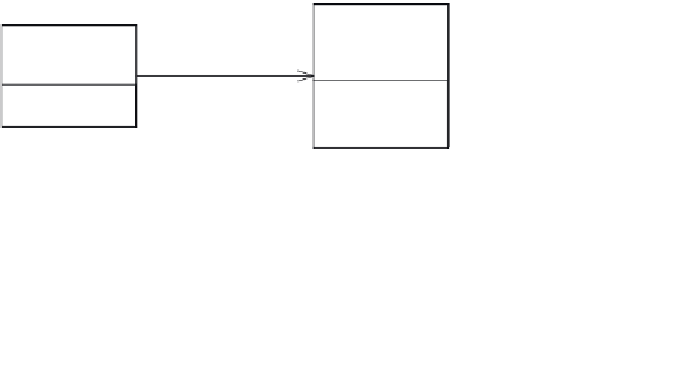Java Reference
In-Depth Information
<<interface>>
Platform
Transaction
Manager
Transaction
Interceptor
Uses
getTransaction()
commit()
rollback()
invoke()
Hibernate
Transaction
Manager
JdoTransaction
Manager
JtaTransaction
Manager
...
Manages local
transactions
Manages global/JTA
transactions
Figure 7.2
The different implementations of the
PlatformTransactionManager
interface
Using local transactions
A local transaction involves only a single database, and can be started, committed,
and rolled back using the
JDBC
or persistence framework
API
s directly. Spring
provides several
PlatformTransactionManager
implementations for managing
local transactions; which one you use depends on how the application accesses
the database. A
JDO
application uses a
JdoTransactionManager
, which manages
transactions using the
JDO
Transaction
interface, and a Hibernate application
uses a
HibernateTransactionManager
, which manages transactions using the
Hibernate
Transaction
interface. In addition, a
JDBC
application uses a
Data-
SourceTransactionManager
, which manages transactions using the
JDBC
Connec-
tion
interface (this is described in more detail in chapter 9).
As well as managing transactions, these
PlatformTransactionManager
imple-
mentations manage a connection that can be used by the repositories that are
called during the transaction. Behind the scenes, they use a
ThreadLocal
to bind
the connection to the thread. Before starting the transaction, the
JdoTransaction-
Manager
opens a
PersistenceManager
, which can be obtained by the repositories
using
PersistenceManagerFactoryUtils.getPersistenceManager()
. It closes the
PersistenceManager
after the transaction ends. Similarly, a
HibernateTransaction-
Manager
manages a
Session
, which the repositories can access by calling
Session-
FactoryUtils.getSession()
. Spring's ORM template classes use these methods to
get a persistence framework connection.






Search WWH ::

Custom Search